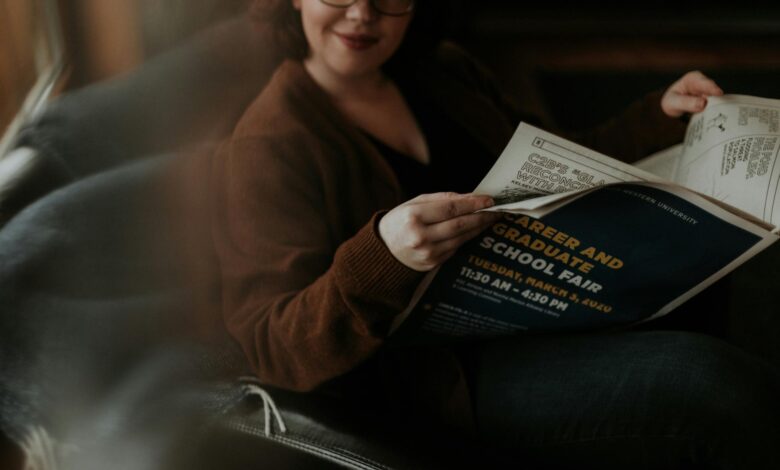The Secret to Academic Success: Incorporating Fun Into Your Routine

As the pursuit of academic excellence becomes increasingly rigorous, students often find themselves mired in a monotonous study routine that can lead to burnout. Shattering the myth of unrelenting grind, research suggests that integrating periods of entertainment and play into one’s schedule may sharpen focus and invigorate the mind. Keep reading to learn how the right balance of study and leisure can foster intellectual growth and improved well-being.
The Role of Breaks and Recreation in Boosting Productivity

Students and academics often find themselves trapped in the unyielding demands of educational objectives. Yet, a brief session of respite, perhaps indulging in a sweepstakes casino online game, can act as a cerebral palate cleanser. These moments of leisure not only provide a needed retreat but can reinvigorate the mind, setting the stage for a more focused return to study. Moreover, for those seeking the best sweepstakes casino online experience, a visit to dingdingding.com offers a myriad of captivating games to unwind and recharge before diving back into academic pursuits.
Traditional views on productivity tend to eschew any forms of entertainment during work periods, pushing the narrative that relentless study leads to success. Current research, however, paints a contrasting picture, demonstrating that strategically timed breaks can act as catalysts for improved concentration. A swift change in activity, like recreational gaming, can disrupt monotony, resetting cognitive engagement once academics are resumed.
The dichotomy between work and play is a shifting landscape within efficient learning strategies. Students who integrate measured amounts of leisure into their regimented schedules report refreshed mental states and more excellent material absorption. Consequently, balancing rigorous academic pursuits with episodes of relaxation and mental stimulation might be the secret ingredient for scholarly triumph.
Creative Study Techniques to Make Learning Enjoyable

Educators and students alike recognize that incorporating engaging study methods can significantly bolster a learner’s enthusiasm and retention of material. Innovative approaches to study, such as gamified quizzes, allow students to interact with challenging concepts in a compelling and less pressured environment.
Interactive case studies bring the intricate world of legal precedents and statutes to life for those pursuing a paralegal associate’s degree. These dynamic scenarios foster an active learning process, with students becoming deeply involved in the intricate narratives that underpin legal theory.
It is this immersion that strengthens comprehension and prepares students for the practical applications of their knowledge. Moreover, online options are available for those seeking flexibility and convenience; search ‘paralegal online associates degree‘ to explore a range of programs tailored to individual needs and preferences.
Contrary to static reading, interactive elements in educational content have the power to sustain student interest beyond initial contact with the materials. The subtle shift from passive to active engagement can transform a routine study session into an intellectually stimulating challenge. Integrating multimedia resources, such as videos and podcasts, not only diversifies the learning experience but also caters to various learning styles.
Progressive study methods unequivocally lead to more prolonged and focused study periods, as they interject elements of joy and surprise into the pursuit of academic excellence. Straying from the conventional path, this approach acknowledges the diverse learner needs and preferences spectrum.
Success Stories: How Fun-Filled Routines Transformed Academic Lives
Jessica, a mathematics graduate student, once trudged through her studies with a growing distaste for abstract theories that seemed endless. Introducing a weekly game night with fellow academicians, not only did she infuse fun into her routine, but her affection for mathematical concepts was reborn through the lens of play. The unexpected joy during these game nights reignited her passion and led to a groundbreaking thesis.
Daniel’s journey through medical school was marked by a relentless cycle of memorization and examination, which nearly extinguished his initial enthusiasm for healing. By allowing himself moments of joy through music and weaving songs related to his studies into playlists, he found a rhythm that carried him through challenging topics. This colorful approach to learning saw him sail through his exams with a refreshed zeal for medicine and patient care.
Sarah discovered that her ability to concentrate on her literature review intensified after attending improvisational theater classes. Through the spontaneity and creative expression demanded on stage, she became adept at thinking on her feet, an attribute that translated into her academic research. The outcome was a well-received dissertation and a newfound confidence beyond the university’s halls.
Overall, incorporating fun and leisure into academic routines emerges as a dynamic strategy for enhancing productivity and fostering a deeper engagement with learning materials. By embracing innovative study techniques and recognizing the value of breaks and recreation, students can unlock their full potential and embark on a journey of academic success enriched